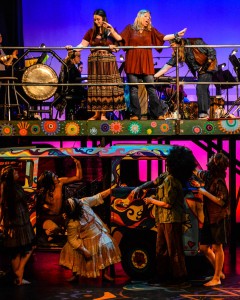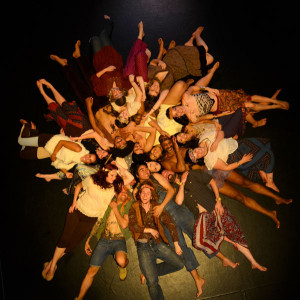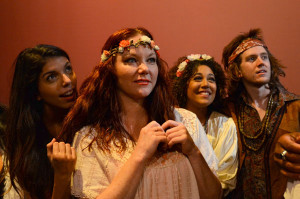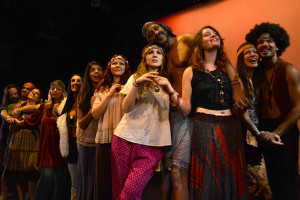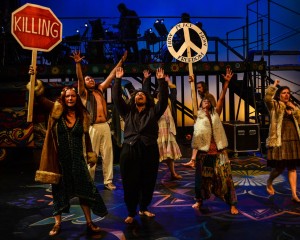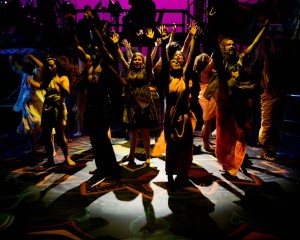This weekend, a new production of HAIR opened at Bainbridge Performing Arts, just a ferry ride away from my home in Seattle. Michael Moore, theater critic for The Kitsap Sun, was won over by the energy and vibrancy of the cast, the fine work of the creative team, and by the irresistible theatrical alchemy of HAIR. Here is his review, in PDF:
https://cdn.shopify.com/s/files/1/0152/6355/files/Review_-_Kitsap_Sun.pdf?16823330995522112269
If you live near Seattle, this is a HAIR you should see. Its anti-war message is as relevant today as it was almost 50 years ago. But don’t procrastinate – its three-week run ends Sunday, October 25. Below are director Teresa Thurman’s excellent program notes, and photos shared with me by BPA’s public relations director, Sally Jo Martine.
DIRECTOR’S NOTES by Teresa Thuman
What happens when two opposing forces collide, such as when a writer of college musical revues (James Rado) meets an experimental ritualistic theatre artist of the Open Theatre (Gerome Ragni) in the middle of an era of radical social change (1960’s)? You get the cosmic explosion and unique cultural fusion that is HAIR, the Broadway hit musical. HAIR was honest, raw, organic, iconoclastic, non-linear, and spoke to a generation rejecting their parents’ rigid and conventional social norms.
HAIR is primarily an anti-war story, created at a time of unapologetic experimentation with every conceivable means of altering reality: psychedelic drugs, sexual freedom, revolutionary politics, a search for identity, self-examination, and, under the shadow of potential induction into the draft, questioning existence itself. Within this environment, a brave, intimate and idealistic tribe is forged, and tested, on their path to celebrate the gift of life.
HAIR is now almost 50 years old, and in 2015 our concepts of radicalism have changed. The pendulum of social change swings through the decades, and HAIR now holds outdated views of racial equity, cultural and gender identity, sexual orientation, politics and drugs (addiction is never explored). We look back knowing much of this hippie utopia was naïve and unsustainable. However, I am forever grateful to this vanguard of courageous idealists, because without their radical acts in the 1960s, this world would be a very different place. Perhaps the Age of Aquarius is indeed upon us and the endurance of this musical is proof enough for me.
***
